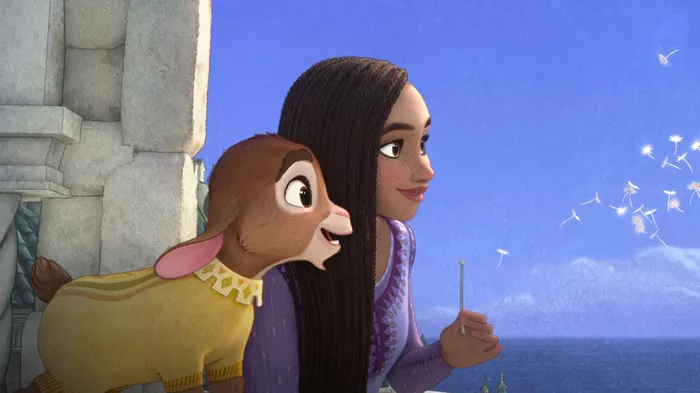Disney’s upcoming animated movie, Wish, has stirred a mix of anticipation and apprehension among fans and critics alike, as it continues the trend of introducing a heroine, Asha, who embodies the contemporary adorkable character archetype. This character trend, which has gained both praise and criticism in recent years, raises questions about Disney’s commitment to evolving its portrayal of female protagonists while staying true to its classic storytelling roots. Wish’s attempt to return to the traditional Disney narrative framework, replete with a formidable villain and the timeless motif of wishing upon a star, is juxtaposed against the persistently recurring traits of the modern Disney heroine, prompting discussions about the need for greater diversity and representation in the portrayal of female characters in animated cinema.
Asha and the Continuation of the Adorkable Heroine Trend
Asha, the central protagonist in Disney’s forthcoming movie, embodies the familiar traits of the adorkable archetype, characterized by her endearing quirks, relatable insecurities, and a whimsical charm that has become synonymous with recent Disney heroines. The trend of adorkable heroines has garnered both fervent praise and significant criticism, with some applauding the portrayal of relatable, multifaceted female characters, while others decry the repetitive nature of these portrayals, highlighting the need for greater diversity and representation in the depiction of female leads. Asha’s embodiment of this contemporary archetype raises pertinent questions about Disney’s commitment to broadening the spectrum of female character representation in its animated narrative landscape.
Nostalgia vs. Innovation: Wish’s Struggle with Traditional Roots and Modern Trends
Disney’s Wish endeavors to reconcile its nostalgic storytelling traditions with the demands of a contemporary audience, seeking to infuse the classic Disney narrative framework with modern sensibilities and relatable character portrayals. While the movie pays homage to the time-honored Disney elements, including the presence of a formidable villain and the enduring theme of wish fulfillment, it grapples with the persistent portrayal of Asha as an adorkable heroine. This struggle between preserving the essence of Disney’s storytelling legacy and catering to evolving audience expectations highlights the delicate balance between nostalgia and innovation, prompting a critical examination of the need for greater diversity and dynamic character portrayals within Disney’s animated cinematic repertoire.
The Limitations of Character Archetypes: Challenges of Representation and Diversity
While the adorkable heroine archetype has found resonance with many audiences, its prevalence within Disney’s animated narrative landscape has sparked discussions about the limitations of character archetypes and their impact on the representation of diverse personalities. Asha’s portrayal as an adorkable protagonist, while endearing and relatable, highlights the need for greater diversity and representation in the depiction of female characters, underscoring the importance of showcasing a broader spectrum of personalities, traits, and experiences within the context of Disney’s storytelling. The persistence of this character archetype raises pertinent questions about the portrayal of female characters in animated cinema, urging a reevaluation of Disney’s approach to character development and representation within its narrative framework.
The Need for Evolution: Redefining Disney’s Heroine Narrative
Disney’s ongoing commitment to redefining its portrayal of female protagonists within the animated cinematic landscape necessitates a critical examination of the prevailing character archetypes and their impact on the representation of diverse and multifaceted personalities. While the adorkable heroine archetype has its place within the broader spectrum of character portrayals, its continued dominance within Disney’s narrative framework underscores the imperative for an evolution in the depiction of female characters. The need to embrace a more comprehensive and diverse range of character traits, experiences, and narrative arcs serves as a catalyst for Disney’s exploration of new storytelling frontiers, challenging the boundaries of traditional character archetypes and opening the door to a more inclusive and dynamic representation of female protagonists within the animated cinematic realm.

